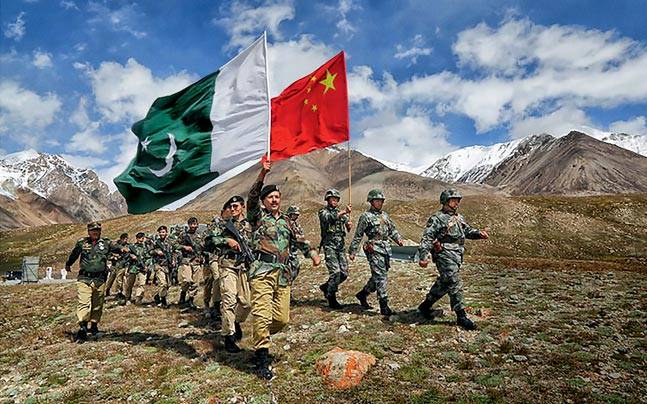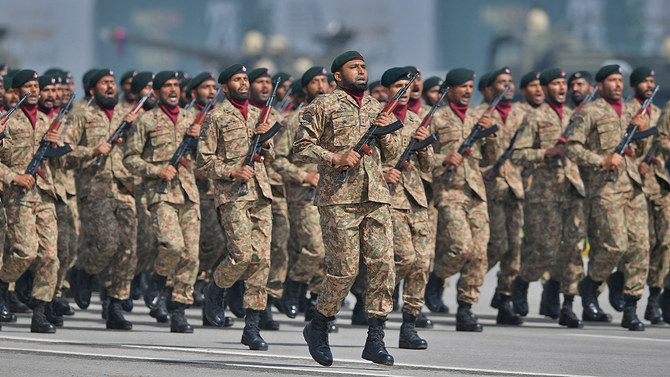Terrorism hinders the “Belt and road” between China and Pakistan

A rise in terrorist attacks in West Pakistan highlights the risks associated with expanding China's Belt and Road Initiative in the country, even as Chinese companies are "learning the ropes" on how to cope with the increase in violence, analysts said.
Amid ongoing celebrations to commemorate the 10th anniversary of the China-Pakistan Economic Corridor (CPEC), July attacks by insurgents from the Pakistani Taliban movement, or TTP, spilled over into areas of Balochistan province considered vital to the expansion of connectivity between Xinjiang and the Chinese-operated Port of Gwadar on the Arabian Sea.
Chinese firms have built an estimated $25 billion primarily for power generation and logistics infrastructure since work on the CPEC began in earnest in 2016. The combined value of projects scheduled for completion by 2030 is estimated at $62 billion. of dollars.
Pakistan has tried to protect Chinese investments: Nine Pakistani soldiers were killed while repelling a July 12 attempt by a TTP suicide squad to storm a garrison in the remote town of Zhob, a vital link in the roads in construction to provide a new shorter route along the western axis of the country towards Gwadar. “The Zhob attack was connected to the CPEC. That is why the [Pakistani] army chief of staff reacted by rushing to Quetta,” the administrative capital of Balochistan, and issued a statement saying that “foreign” nationals were involved,” said Afrasiab Khattak, a former member of the Senate of Pakistan.
 Pakistan's army high command, which dominates national politics, subsequently issued several statements blaming the attacks on TTP insurgents who enjoy "safe havens and freedom of action" in Afghanistan, and called on the Taliban regime to keep true to its pledge to prevent the export of terrorism from the war-torn country.
Pakistan's army high command, which dominates national politics, subsequently issued several statements blaming the attacks on TTP insurgents who enjoy "safe havens and freedom of action" in Afghanistan, and called on the Taliban regime to keep true to its pledge to prevent the export of terrorism from the war-torn country.
"The situation in West Pakistan has worsened since the Taliban took control of Afghanistan" two years ago during the withdrawal of US-led international forces after two bloody decades of occupation, Khattak said.
Although CPEC projects have not been directly targeted as they are protected by multiple layers of security, terrorists have targeted non-CPEC projects involving Chinese companies, such as the Dasu Hydroelectric Dam . Chinese nationals have also been targeted: three language teachers were killed at the University of Karachi in April 2022, while a dentist was killed in Karachi in September last year. This has prompted the Pakistani authorities to extend CPEC-level security to all Chinese companies and to restrict the movement of Chinese nationals.
Despite the Taliban regime's repeated denials, "the TTP is part of the Taliban and has now been outfitted with weapons left behind in Afghanistan by US forces," Khattak said. This has enabled the TTP to revive the insurgency that Pakistani security forces defeated in 2015 after eight years of fighting, which claimed more than 70,000 lives and crippled the national economy.
"Now it is a full-blown insurgency with a shadow government targeting Pakistani state symbols and personnel," Khattak said, but the situation is difficult for ISlamabad to resolve: if Pakistan implements its repeated threats of retaliatory cross-border attacks against TTP bases in Afghanistan, "would further aggravate the situation". “The Taliban [regime] would be unable to curb anti-Pakistani sentiment within its ranks, and would be forced to reconsider its alliance with Pakistan” under which the Islamist movement has enjoyed safe havens in the border areas of the West Pakistan during its 20-year war with the United States and its allies, Khattak said.
The security situation has been further complicated by the spread of fighting between Afghanistan's Taliban regime and rival Islamic State Khorasan (ISIS-K) across the border into the tribal districts of Pakistan's northwestern Khyber Pakhtunkhwa province. Pakistani officials said they suspected ISIS-K was responsible for a suicide bombing at a rally by an Afghan Taliban Islamist party in the Bajaur tribal district on Sunday.
The Afghan Taliban and the TTP both condemned the attack which killed at least 54 people, while Isis-K on Monday claimed responsibility.
The Bajaur attack coincided with the arrival of Chinese Vice Premier He Lifeng in Islamabad for talks on the second phase of the CPEC.
Beijing has repeatedly told its "strategic partner" Pakistan to take more action to protect its citizens and projects, following lethal attacks by TTP and Baloch rebels particularly in the past two years. But this is an illusion, because terrorist attacks will intensify as Chinese investment increases. The Americans have not succeeded in 30 years to eradicate Islamic terrorism in Pakistan, the Chinese will not succeed, who have no idea what quagmire they have gotten themselves into.
Surely the Chinese will have very few qualms about intervening directly in Pakistan and Afghanistan to deal with the solution of these problems related to terrorism. A TTP militant killed in Afghanistan in 2021, behind suicide attacks that had seen the death of nine Chinese citizens, almost certainly saw the Chinese services involved. Beijing has said that obstacles to Sino-Pakistani friendship will not be tolerated. But Pakistan and Afghanistan are strongly Islamic countries where extremists and terrorists are at home. Will Beijing manage not to get overwhelmed?

Thanks to our Telegram channel you can stay updated on the publication of new articles from Economic Scenarios.
The article Terrorism hinders the "Belt and road" between China and Pakistan comes from Scenari Economici .
This is a machine translation of a post published on Scenari Economici at the URL https://scenarieconomici.it/il-terrorismo-ostacola-la-belt-and-road-fra-cina-e-pakistan/ on Wed, 02 Aug 2023 07:00:49 +0000.
